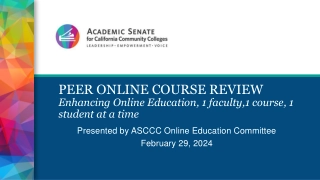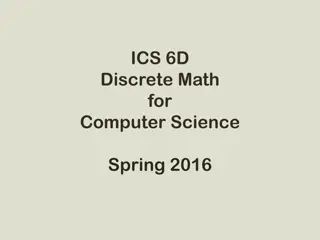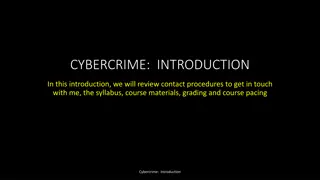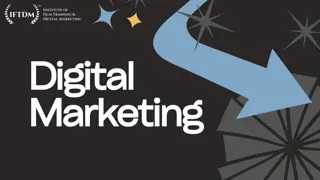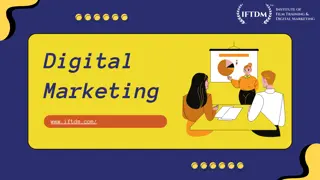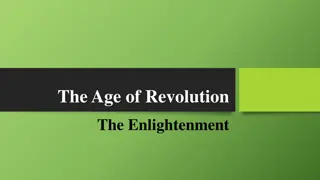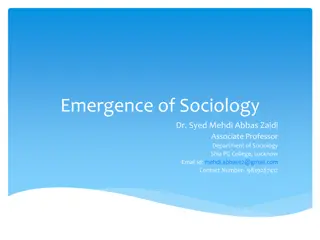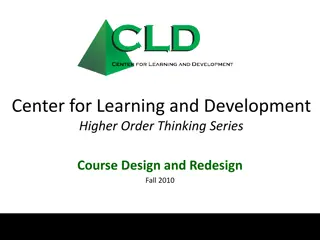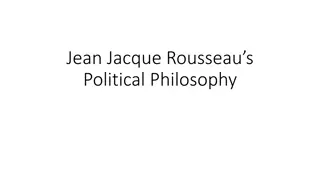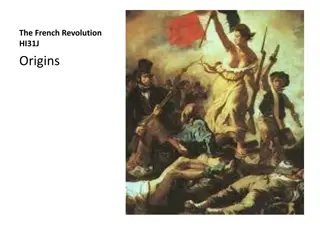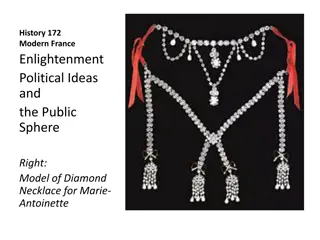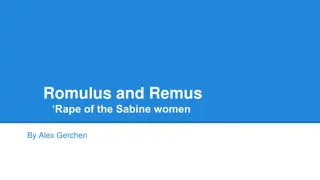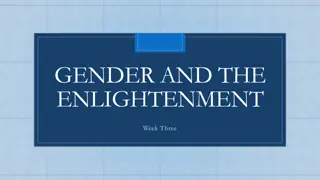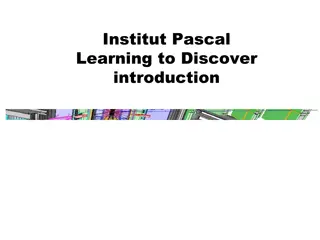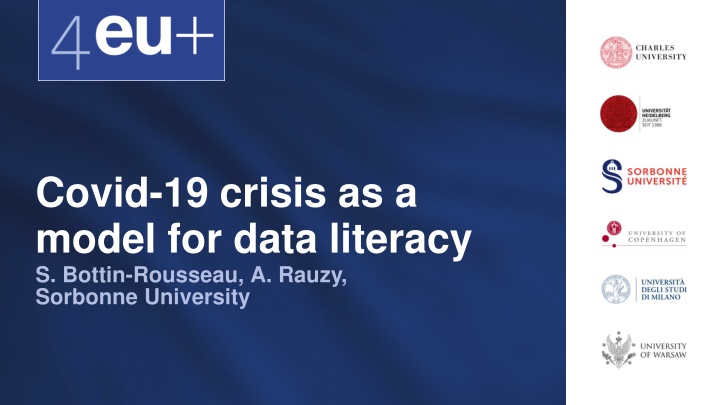
Unlocking COVID-19 Data Literacy with Expert Education
Discover a pioneering course by Sorbonne University diving deep into the COVID-19 crisis, featuring expert insights from various disciplines such as pharmaceutical science, psychology, sociology, and more. Equip yourself with the knowledge needed to understand and counter fake news surrounding the pandemic, all while mastering the manipulation of data in a critical and autonomous manner.
Download Presentation

Please find below an Image/Link to download the presentation.
The content on the website is provided AS IS for your information and personal use only. It may not be sold, licensed, or shared on other websites without obtaining consent from the author. If you encounter any issues during the download, it is possible that the publisher has removed the file from their server.
You are allowed to download the files provided on this website for personal or commercial use, subject to the condition that they are used lawfully. All files are the property of their respective owners.
The content on the website is provided AS IS for your information and personal use only. It may not be sold, licensed, or shared on other websites without obtaining consent from the author.
E N D
Presentation Transcript
Covid-19 crisis as a model for data literacy S. Bottin-Rousseau, A. Rauzy, Sorbonne University
Pedagogical Content This course is designed to equip you with the knowledge to understand the COVID pandemic in all dimensions: mastering the concept manipulating the autonomy, exercising thinking and countering fake news. model , acting your of data, in critical 2
First phase Multidisciplinary approach Teachers in health, sciences and humanities will present the researchers answers to the issues posed by the pandemic in short videos. For each expert: 3 videos, followed by quizzes 3
Expert courses 1/3 Pharmaceutical Science: Giulio Vistoli (UM) Overview on the opportunities and challenges proposed by the rational discovery of efficient drugs to combat SARS- CoV-2 infection. Giulio Vistoli (UM) Epidemiology: Elia Biganzoli (UM) Overview of the application of Medical Statistics and Data Science principles to the epidemiological aspects of Covid- 19. Elia Biganzoli (UM) Gynaecology: Khaled Ismael (CU) Overview on the impact of the pandemic on women s health-related clinical outcomes and service provision in high, low and middle-income healthcare settings Khaled Ismael (CU) 4
Expert courses 2/3 Antonella delle Fave (UM) Psychology: Antonella delle Fave (UM) Resilience is the ability to actively rebound from disruptive life challenges. Covid-19 pandemic is a clear example of an adversarial circumstance, in which resilience represents a key asset supporting the successful functioning of persons, families and communities. Empirical evidence of Covid-related resilience will be provided through results from research studies. Political Science: Jale Tosun (UH) Explain the policy responses to the Covid-19 pandemic, with a focus on the comparison of the policy measures adopted at the level of the nation-state. Jale Tosun (UH) 5
Expert courses 3/3 Sociology: Beate Collet (SU) Overview of some social consequences of lockdown, especially in family and private life sphere. The pandemic not only has an impact on health, but also transforms social relations. The idea is to foster multidimensional thinking including consequences on social relations. Beate Collet (SU) Geography: Olivier Milhaud (SU) Overview of some geographical dimensions of the pandemic and the manifold circulations (of virus, people, workers, goods, financial flows). It develops critical thinking by considering movements in the context of lockdowns. Olivier Milhaud (SU) Philosophy: C dric Paternotte (SU) Why and when are Randomized Controlled Trials (RCTs) the best method of finding efficient treatments in the context of a pandemic? Philosophical arguments regarding the epistemological, ethical and pragmatic aspects of RCTs will be introduced and discussed. C dric Paternotte (SU) 6
Second phase Course in Statistics Basis statistics for beginners More advanced for science students Olivier Lopez (SU) 4 videos, notes, and quizzes 7
Second phase Practical training on data in Python language to better master and understand digital representations 6 Practical labs to learn the basis of the language and handle data On JupiterLab with Notebooks Sabine Bottin-Rousseau (SU) Antoine Rauzy (SU) 8 JupiterLab of the Maths Department of Sorbonne University will be used https://jupyter.math.upmc.fr/
Third phase Research Project In small international groups, you will do a research project on a subject linked to one of the themes of the short videos. For this project, you will use statistics, data handling and collate the research. 9 The experts will follow up the subjects about their disciplines
Timeline of the course Statistical course and Practical Labs 15thof March 15th April Project in international group 1stof April 30thof May Expert courses 1st 14thof March Creation of working groups 1stof April 10
Time required Statistical course and Practical Work 8h + 12h Project in international group 30 h Expert courses 8 hours Creation of working groups 2 hours on LMS 11
Evaluation Quizzes from Experts Statistical Course Quizzes Practical Work Project in Group 30 content, 30 presentation and workgroup (declaration of the work of each member) Total 10 10 20 60 100 12
Final Achievement Your group will write a final report (10 pages max) Prepare a slideshow presentation Present and defend it online 13
Thank you! S. Bottin-Rousseau, Sorbonne University Coordinator of the course sabine.bottin_rousseau@sorbonne-universite.fr

